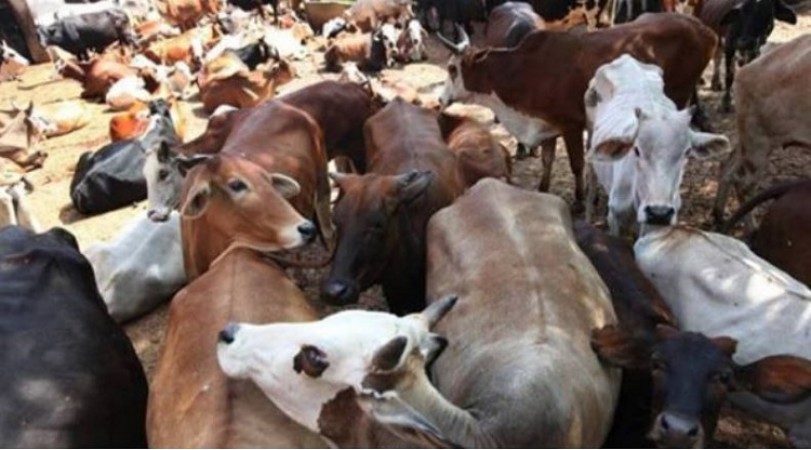
HYDERABAD: On June 7, the Central government quietly issued the draught notification for the introduction of the Livestock and Livestock Products (Import and Export) Bill 2023 for discussion in both chambers of Parliament. However, given that the Bill permits the export of live cattle for the first time, concerns have been voiced about the potential decline in the livestock population within the nation.
Independent of the BJP or RSS, cow vigilantes have raised concern over the short deadline for expressing concerns and recommendations, which is slated to conclude on June 17. The Livestock Importation Act of 1898, which was updated in 2001 as the Livestock Import (Amendment) Act and is soon to be abolished, would be replaced if this Bill is passed.
The phrase "livestock" is used in the Bill to refer to a variety of animals, including donkeys, horses, mules, cattle, buffaloes, sheep, goats, pigs, dogs, cats, birds, laboratory animals, aquatic creatures, and any other animals that may be sometimes defined by the Central government.
The Bill includes measures to promote and develop the products as well as rules for the import and export of cattle. In order to control the import of cattle and livestock products that can be susceptible to rare infectious or communicable diseases, it also involves hygienic procedures. The population of bovines (including cattle, buffaloes, and bullocks) in Telangana declined from almost 90 lakh in 2012 to 84.5 lakh in 2019, according to the 20th livestock census. The number of donkeys also decreased at this time, going from 3,000 to 2,000.
According to Mahesh Agarwal, the honorary president of the Telangana Goshala Federation, around 10,000 animals were butchered in Telangana on Eid-ul-Azha last year. Additionally, he asserts that 2,000 cattle are forcibly brought from various regions of Telangana into Hyderabad each day to be butchered after being fed for a few days. He said, these activities are against the 1977 Telangana Prohibition of Cow Slaughter and Animal Preservation Act.Agarwal draws attention to the fact that Telangana's government should set up, run, and maintain cattle shelters to give animals access to food, water, and shelter—something that has not been done well in the State.
The "Livestock Bill" refers to a legislative proposal or piece of legislation aimed at addressing various aspects related to livestock management and regulation.
Livestock bills often encompass a wide range of provisions that seek to promote animal welfare, ensure food safety, regulate livestock production practices, and address environmental concerns associated with the livestock industry. These bills typically cover aspects such as animal housing and care standards, transportation, disease control measures, labeling requirements, and the use of antibiotics or growth hormones.
Livestock Bills are often subject to public debate and stakeholder input to strike a balance between protecting animal welfare, ensuring food safety, and supporting the viability of the livestock industry. The aim is to create legislation that considers the interests of farmers, consumers, animal rights advocates, and environmental conservationists.
Karnataka Cabinet abolishes BJP's introduced anti-conversion law